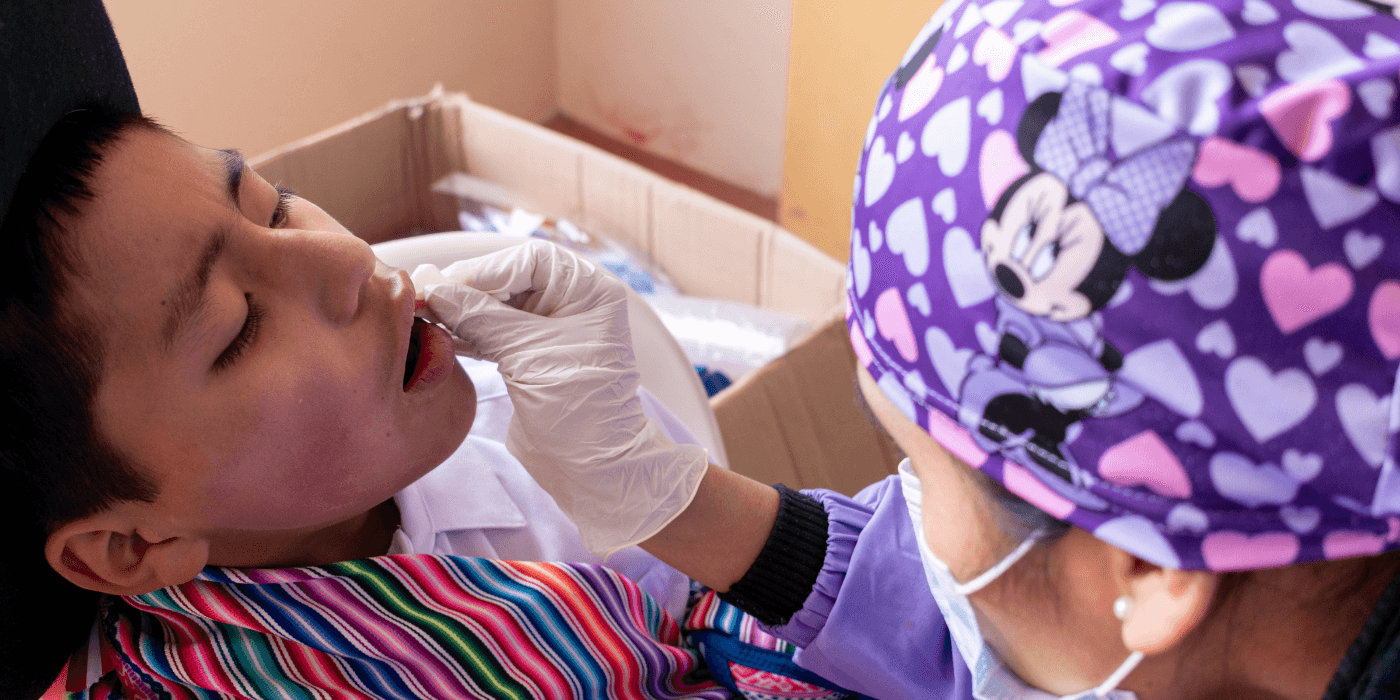The power of a dental clinic in Huancavelica, Peru
For the kids of the Sachaorco community in Huancavelica, a rural mountainous region of Peru, the day begins before dawn. Between tending livestock, planting and harvesting, preparing food, and traveling sometimes hours to go to school, the day seems to slip away. To make everything a little more complicated, all the “roads” are steep, dirt paths and it’s always cold as this region is 12,000 feet above sea level. Like many Peruvians living in rural areas, all their time is dedicated to making money or going to school, and as a result, basic health is often neglected.
Community outreach is not one size fits all; it’s always a priority of ours to make sure that our programs are meeting local needs. After several trips to our campus and talking to our local leaders, we knew that dental hygiene was a big problem and that hosting a dental clinic would remind these people that they have not been forgotten.
Without hesitation, Katherine Álvarez, one of our dentists who graduated from the Make a Miracle scholarship program, offered to join the team and traveled more than 16 hours by bus to use her skills to serve Huancavelicans.
It was clear that hosting a dental clinic wouldn't be easy: the distance from Lima, the altitude, the lack of resources, the initial mistrust... but we used these obstacles as motivation. Huancavelicans often describe themselves as forgotten, forgotten by their government, forgotten by families who moved elsewhere, and forgotten by nonprofits. We were going to show them that they are seen. They are loved.
More than 80 people came to our very first dental clinic in this region and everyone came with unique stories. We saw a child who had never been to the dentist because his family couldn't afford it, a mother who suffered from terrible tooth pain because she just couldn’t afford to take time away from the farm to get dental care, an elderly man who had lost teeth without ever having seen a dentist, and so many other cases like these.
One thing that really touched me was when a child fearfully asked me to accompany him to the chair where he would be treated. His only reference to dental care was intense pain. However, fear didn't stop him. Bravely, with the strength that only comes from facing so many difficulties at a young age, he left the appointment with a dental kit in hand and a radiant smile. He even said to his friends: "Go to the dentist, it doesn't hurt at all!"
The campaign became something much bigger than a dental clinic; it was an act of community love. When we bring medical care to places never before reached, we don't just relieve pain: we restore dignity and sow hope that they are seen and valued. In every treated smile, there is a renewed commitment to a more kind world, where access to healthcare, in all its forms, doesn't depend on geography or economics, but on the will to build a future with equality and humanity.
